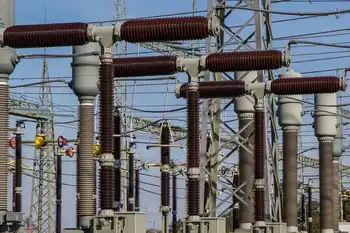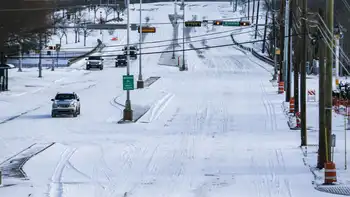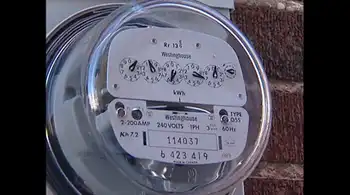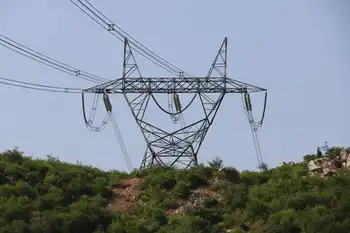Residents powering homes face problems
By Kansas City Star
Arc Flash Training CSA Z462 - Electrical Safety Essentials
Our customized live online or in‑person group training can be delivered to your staff at your location.

- Live Online
- 6 hours Instructor-led
- Group Training Available
The idea was for the homeowners to be able to send any excess power back to utilities.
But the Missouri Public Service Commission, which oversees the utilities, is requiring homeowners to buy insurance before they start feeding electricity to the grid. And it appears that no Missouri insurance companies sell the insurance.
Henry Robertson, an attorney for St. Louis-based Great Rivers Environmental Law Center, says he's contacted renewable energy installers who've told him the insurance isn't available.
"You can't get it," Robertson said.
Under the new rule, homeowners who produce 10 kilowatts or less of energy must carry $100,000 worth of liability insurance. Those who generate more than 10 kilowatts of electricity must have a $1 million liability insurance policy.
Robertson thinks the rule violates the Net Metering and Easy Connection Act, which was passed by the General Assembly in 2007.
That law says homeowners don't have to buy insurance if they generate less than 10 kilowatts of electricity, and it doesn't address homeowners who produce more than that, Robertson said.
Robertson's firm filed a lawsuit against the Public Service Commission last month on behalf of Renew Missouri, which lobbied for the law.
Commission chairman Jeff Davis said the commission felt the law was vague.
Davis said that although the risk for linemen to be electrocuted and property destroyed is slight, "if someone does get electrocuted, that is going to be a very serious accident for that person and his family."
The program is known in many states as "net metering." Customers can install renewable energy sources such as wind and solar generators and an inverter that converts the direct current coming into the house to an alternating current.
The inverter, which is near the meter, detects excess electricity and that allows the meter to run backward.
Kansas has a type of net metering called parallel generation, said Ray Hammarlund, director of the Kansas Corporation Commission's energy program division. Liability insurance isn't required.
In more than 42 states, customers are allowed to receive a credit for feeding excess energy back into the power grid.
A U.S. Department of Energy-funded Web site that summarizes net metering in more than 30 states shows Indiana and several communities in Florida and Utah as requiring liability insurance.
At least 10 states waived the insurance, while others didn't address it.
When asked about insurance for net metering, American Family spokesman Ken Muth told The Kansas City Star, "You got me with a new one here."
Mark Schussel, a spokesman for Chubb Group of Insurance Companies, gave a similar response. "It is nothing I have heard of," he said.
Brent Butler, government affairs director for nonprofit watchdog group Missouri Insurance Coalition, believes someone will offer the insurance if the judge rules in favor of the Public Service Commission.
"The market will figure out how to get this coverage available," he said.











